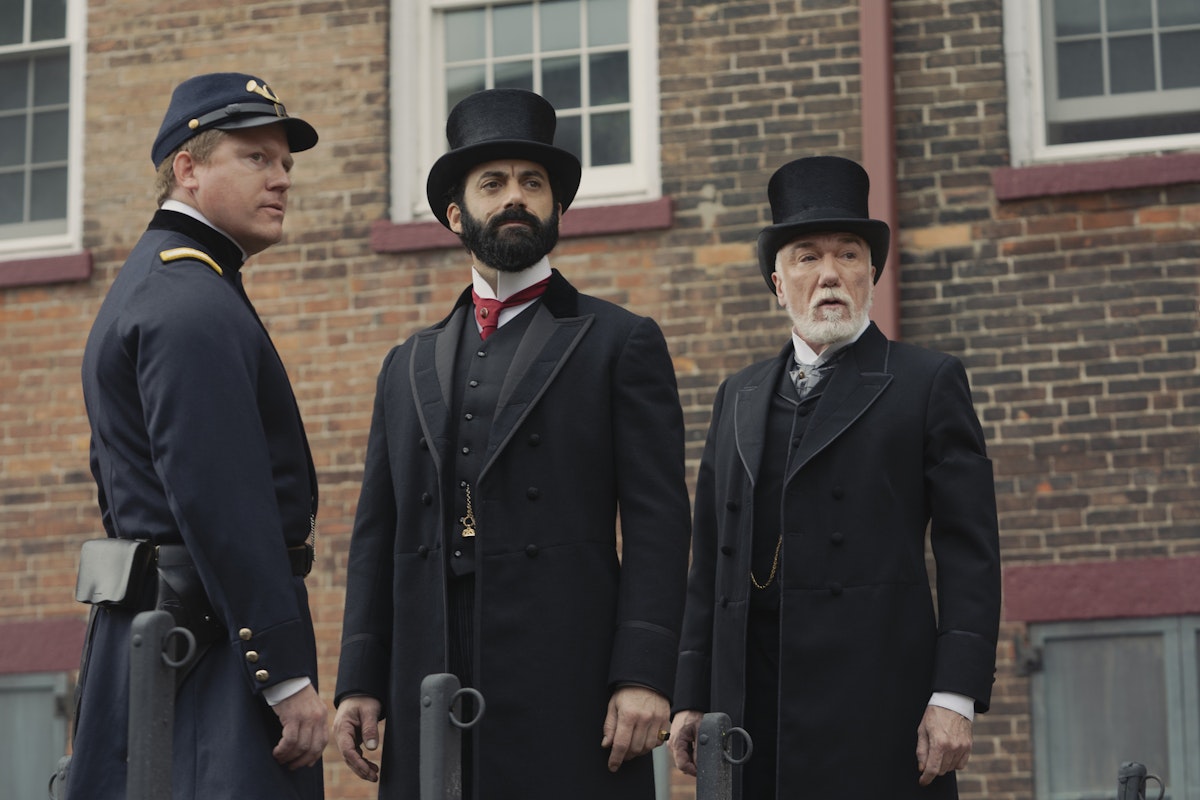
Morgan Spector is one of the revelations of this show, at least in part because he somehow imbues a part that could credibly be played by the Monopoly Man with a discordant warmth and humanity to match his lethal guile. (Whether the show should give such a generous edit to such a character is a different question.) Russell represents a cartoon version of a Gilded Age robber baron, both in his laughably broad characterization and in his almost cuddly fatherly energy. While Russell is put at odds with Henderson (Darren Goldstein), the fiery and ethical union leader at his steel mill, the show has worked hard to train us to believe that Russell will resist the impulse of nearly every historical figure upon which he is based and do the right thing, or at least some approximate version of it. When Henderson asks Russell, “Do you believe that workers can win against capital?” you can tell that somewhere, some part of Russell is thinking, “Well, yeah, maybe!”
Andrew Carnegie would not have been so persuaded. In 1892, during the labor action The Gilded Age seems to be drawing on for inspiration, striking laborers at Homestead Steel Works in Pittsburgh fought and defeated Pinkerton agents employed by Carnegie and Henry Clay Frick. Seven workers died, and, despite that victory, the strike was ultimately broken. Real-life magnates like Carnegie and Frick weren’t half as sympathetic as George Russell. But it should not be much of a spoiler to say that what ends up happening with Russell and his workers does not quite hew to that cruel historical line. In Fellowes’s alternate history, the bad guys whose badness is the defining feature of their era are, counterintuitively, counterfactually, not so bad once you get to know them.
The Gilded Age has never been trying to do too much. Two seasons in, it’s content being a bit of floofy, indulgent period drama fun. And, in that respect, it’s never been better. But the predicament is that The Gilded Age also insists on periodically picking up complex histories and treating them with the same lightness, frivolity, and blinkered optimism with which it treats the romantic prospects of the leads. As one of the only contemporary representations of a labor union to appear in TV’s season of solidarity, it feels odd that our favorite robber baron would be presented to viewers as a reasonable family man, wary of the markets but ultimately sensitive to the plight of their workers. TV writers and actors are not in the same dire straits as the steelworkers of Homestead, but network and studio executives have authorized the same starvation tactics and public smears their Gilded Age ancestors used to avoid paying too far above “the going rate.”